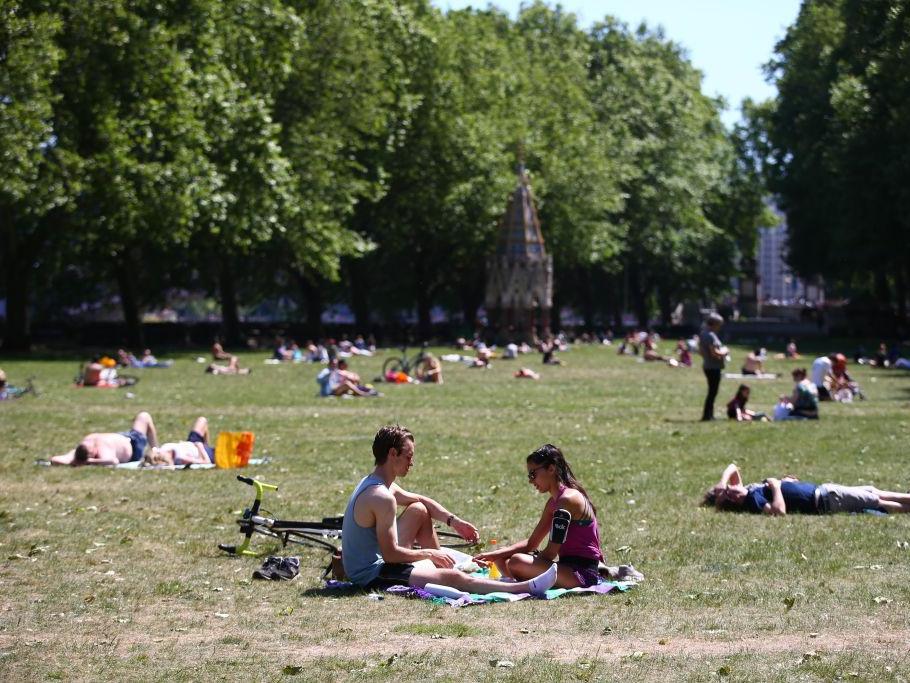Coronavirus: At least four homeless people unlawfully prosecuted for 'being outside'
Crown Prosecution Service review also finds all charges under separate Coronavirus Act to be unlawful
Your support helps us to tell the story
From reproductive rights to climate change to Big Tech, The Independent is on the ground when the story is developing. Whether it's investigating the financials of Elon Musk's pro-Trump PAC or producing our latest documentary, 'The A Word', which shines a light on the American women fighting for reproductive rights, we know how important it is to parse out the facts from the messaging.
At such a critical moment in US history, we need reporters on the ground. Your donation allows us to keep sending journalists to speak to both sides of the story.
The Independent is trusted by Americans across the entire political spectrum. And unlike many other quality news outlets, we choose not to lock Americans out of our reporting and analysis with paywalls. We believe quality journalism should be available to everyone, paid for by those who can afford it.
Your support makes all the difference.At least four homeless people have been unlawfully prosecuted for breaking coronavirus lockdown laws, new figures reveal.
The Crown Prosecution Service (CPS) said the charges were withdrawn in May and that more cases are under review.
The four unnamed people were charged under the Health Protection Regulations, which made it illegal to leave home or be outside “without reasonable excuse” at the time.
But the law, which enforced the UK’s lockdown, stated that it “does not apply to any person who is homeless”.
Police were previously found to be punishing people "without any legal basis" by MPs, and statistics show that black people are fined and arrested disproportionately under coronavirus laws.
In total, 20 out of 271 (7 per cent) of charges under the Health Protection Regulations have been found to be unlawful since the law came into force in March.
Four were withdrawn in May because they were against homeless people, while others had seen the Welsh version of the law wrongly used or had evidential issues.
Other cases are believed to be ongoing, including that of a man who was arrested under the same law in London but claimed to be homeless.
Sultan Monsour, 45, faces trial after pleading not guilty to an offence under the Health Protection Regulations.
A judge challenged the CPS over the charge during a hearing at Westminster’ Magistrates Court last month, saying it “doesn’t make sense”.
The case proceeded after prosecutors said there was “sufficient evidence to proceed” and that facts were disputed, and will return to court on 22 June.
In April, a rough sleeper in Manchester had a charge of breaching the Health Protection Regulations withdrawn after the court was told it could not apply to homeless people.
The new CPS figures also showed that nine more prosecutions under the separate Coronavirus Act were unlawful, bringing the total to 53.
The law can only apply to “potentially infectious persons” and according to the CPS review, has never been used correctly in a prosecution.
While the majority of Coronavirus Act charges were withdrawn, several people have been wrongly convicted and one woman was fined £600 after “loitering” at a railway station.
The CPS said that in all but one case reviewed in May, the people being prosecuted had also been charged with other crimes, including burglary and assaulting an emergency worker.
New guidance issued to police in April called the powers “exceptional” and added: “We don’t expect you to use these powers in the course of ordinary duty and you really shouldn’t unless asked by a public health officer.”
CPS guidance now says that people being charged with serious offences should not be prosecuted under coronavirus laws at the same time, but that lockdown breaches should be noted as an “aggravating feature” for sentencing.
It mounted a review of charges under the new coronavirus laws after several miscarriages of justice were reported by the media.
Gregor McGill, the CPS director of legal services, said: “Continued hard work by the police and Crown Prosecution Service has improved the application and enforcement of the rules under the coronavirus legislation.
“Errors have significantly reduced, with all but one of the incorrect charges immediately identified and withdrawn by prosecutors in court.
“The CPS will continue to review all finalised prosecutions where no fixed penalty notice was offered, as well as every case where someone disputes they have breached the Regulations, for as long as these laws remain in place.”
The review only covers prosecutions, meaning it does not include fines handed out by police.

The National Police Chiefs’ Council (NPCC) has admitted cancelling several fines that had been wrongly imposed or recorded.
Last week, chair Martin Hewitt said the rescinded penalties showed that “internal scrutiny procedures” were working.
He previously said he had never seen laws brought in so quickly “ without the normal consultation, consideration, training and information”.
“It’s not to make an excuse or that we’re not concerned but we have to put it into context,” he added.
“I’m confident that we’re in a place where we’ve got the right checks and balances and we should be minimising any mistakes going forward.”
More than 18,000 fines have been handed out under the regulations across England and Wales since 27 March, but the number issued has dropped steeply as the lockdown eases.
There is no route to appeal the penalties without refusing to pay and risking prosecution.

Join our commenting forum
Join thought-provoking conversations, follow other Independent readers and see their replies
Comments